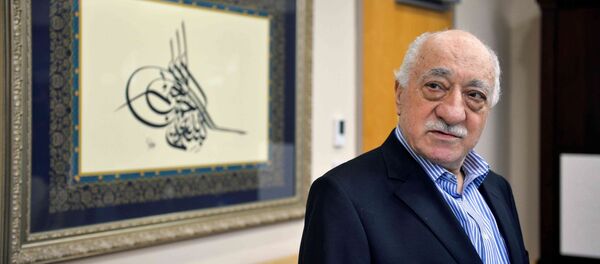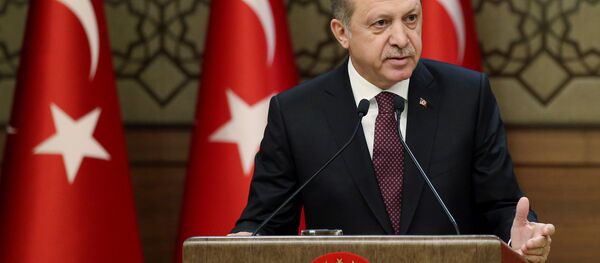Radio Sputnik discussed the issue with Dr. Mehmet Yegin, researcher on Turkish-US relations and analyst at Ankara-based USAK think-tank.
According to the expert, a lot will depend on the outcome of the talks between Donald Trump and Russian President Putin on the one hand, and Trump and Turkish President Erdogan, on the other.
"These two directions, I think, will determine the main dynamics in Syria that we will face on the ground," the expert told Radio Sputnik.
In Yegin's opinion, Turkey and the US "are eager to work together" in contrast to the Obama administration. The leaders of the two countries might sign a deal in the near future to resolve various problems, including the Kurdish issue.
Washington is actively working with Kurdish forces while Ankara regards them as terrorists, which is why both countries need to reach some kind of an agreement. However, the expert pointed out that the deal will be a declaration of good intentions, rather than a practical step towards the improvement of the situation.
"When we look at the reality on the ground, there are not too many things to be changed by just making a deal," the expert stated.
Under former Obama administration, relations between Washington and Ankara significantly deteriorated. Turkey has spoken out over US reluctance to extradite Islamic preacher Fethullah Gulen. The latter is accused by Ankara of organizing the failed coup attempt in July last year.
Another major disagreement between the two countries is the US' support of PYD militants in Syria regarded by Turkey as terrorists. In this regard, however, big changes are unlikely, the expert argued.
"The US may help limit the PKK activities in Iraq and Turkey, but as for PYD, I think the main dynamics will remain the same. So, there is not much to change on the PYD issue in Syria," he stated.
Replying to the question of how likely the cooperation between Ankara and Washington is to be coordinated with Damascus, the expert said:
"During the Obama administration, there was a certain level of coordination with Syria, but the Obama administration was hesitant to say it out loud because it declared in the first place that Assad should go. But the Trump administration does not have such a declaration […] so I think he will be less hesitant to work with Syria in this regard."



